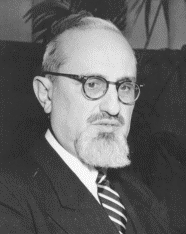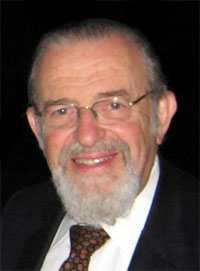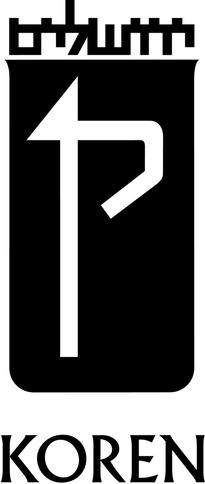Modern Orthodox Judaism is a movement within Orthodox Judaism that attempts to synthesize Jewish values and the observance of Jewish law with the modern world.

Joseph Ber Soloveitchik was a major American Orthodox rabbi, Talmudist, and modern Jewish philosopher. He was a scion of the Lithuanian Jewish Soloveitchik rabbinic dynasty.

Jewish philosophy includes all philosophy carried out by Jews, or in relation to the religion of Judaism. Until modern Haskalah and Jewish emancipation, Jewish philosophy was preoccupied with attempts to reconcile coherent new ideas into the tradition of Rabbinic Judaism, thus organizing emergent ideas that are not necessarily Jewish into a uniquely Jewish scholastic framework and world-view. With their acceptance into modern society, Jews with secular educations embraced or developed entirely new philosophies to meet the demands of the world in which they now found themselves.
Religious pluralism is a set of religious world views that hold that one's religion is not the sole and exclusive source of truth, and thus recognizes that some level of truth and value exists in other religions. As such, religious pluralism goes beyond religious tolerance, which is the condition of peaceful existence between adherents of different religions or religious denominations.

Norman Lamm was an American Modern Orthodox rabbi, scholar, academic administrator, author, and Jewish community leader. He was the Chancellor of Yeshiva University until he announced his retirement on July 1, 2013.
Torah Umadda is a worldview in Orthodox Judaism concerning the relationship between the secular world and Judaism, and in particular between secular knowledge and Jewish religious knowledge. The resultant mode of Orthodox Judaism is referred to as Centrist Orthodoxy.

David Hartman was an American-Israeli leader and philosopher of contemporary Judaism, founder of the Shalom Hartman Institute in Jerusalem, Israel, and a Jewish author.

Tradition: A Journal of Orthodox Jewish Thought is a quarterly Orthodox Jewish peer-reviewed academic journal published by the Rabbinical Council of America. It covers a range of topics including philosophy and theology, history, law, and ethics. It was established in 1958 by the founding editor-in-chief Norman Lamm. He was succeeded by Walter Wurzburger (1962-1988), Emanuel Feldman (1988-2001), Michael Shmidman (2001-2004), and Shalom Carmy (2004-2019). Jeffrey Saks was named the journal's sixth editor in January 2019.
Mayer E. Twersky is an Orthodox rabbi and one of the roshei yeshiva at the Rabbi Isaac Elchanan Theological Seminary (RIETS) of Yeshiva University. He holds the Leib Merkin Distinguished Professorial Chair in Talmud and Jewish Philosophy. His popular lectures emphasize a combination of conceptual analyses and ethical imperatives.
Jewish commentaries on the Bible are biblical commentaries of the Hebrew Bible from a Jewish perspective. Translations into Aramaic and English, and some universally accepted Jewish commentaries with notes on their method of approach and also some modern translations into English with notes are listed.

Yeshivat Har Etzion, commonly known in English as "Gush" and in Hebrew as "Yeshivat HaGush", is a hesder yeshiva located in Alon Shvut, an Israeli settlement in Gush Etzion. It is considered one of the leading institutions of advanced Torah study in the world and with a student body of roughly 480, it is one of the largest hesder yeshivot in the West Bank.

Marc B. Shapiro is a professor and the author of various books and articles on Jewish history, philosophy, theology, and rabbinic literature.
Rabbi Hayyim Angel is an American rabbi, academic, author and editor who is the National Scholar of the Institute for Jewish Ideas and Ideals.

Koren Publishers Jerusalem is an Israeli publisher of Jewish religious texts. It was established in 1961 by Eliyahu Koren, with the aim of publishing the first Hebrew Bible designed, edited, printed, and bound by Jews in nearly 500 years. It produced The Koren Bible in 1962, The Koren Siddur in 1981, and the Koren Sacks Siddur in 2009, in addition to numerous editions of these books and other religious texts in Hebrew, English, and other languages.

Yeshivat Ma'ale Gilboa is a Shiluv Yeshiva located on Kibbutz Ma'ale Gilboa in Israel's Gilboa Mountains. The Shiluv Yeshiva is unique in that it combines two years of Torah study with the full three years of army service. This is in contrast to students from Hesder Yeshivot, which only serve in the army for a year and a half and complete three and a half years of Torah study. The Yeshiva emphasizes a commitment to rigorous Torah study, intellectual openness, intellectual disagreement and social consciousness.

Orthodox Jewish philosophy comprises the philosophical and theological teachings of Orthodox Judaism. Though Orthodox Judaism sees itself as the heir of traditional rabbinic Judaism, the present-day movement is thought to have first formed in the late 18th century, mainly in reaction to the Jewish emancipation and the growth of the Haskalah and Reform movements. Orthodox Jewish philosophy concerns itself with interpreting traditional Jewish sources, reconciling the Jewish faith with the changes in the modern world and the movement's relationships with the State of Israel and other Jewish denominations.

The Fuchsberg Jerusalem Center for Conservative Judaism is the central organization for Conservative Judaism in Israel. The Fuchsberg Center houses the Conservative Yeshiva, Moreshet Yisrael synagogue, and the Agron Guest House managed by the Israel Youth Hostel Association.
Nathaniel Helfgot is an American rabbi. He leads Congregation Netivot Shalom of Teaneck, New Jersey, and served as president of the International Rabbinic Fellowship.










